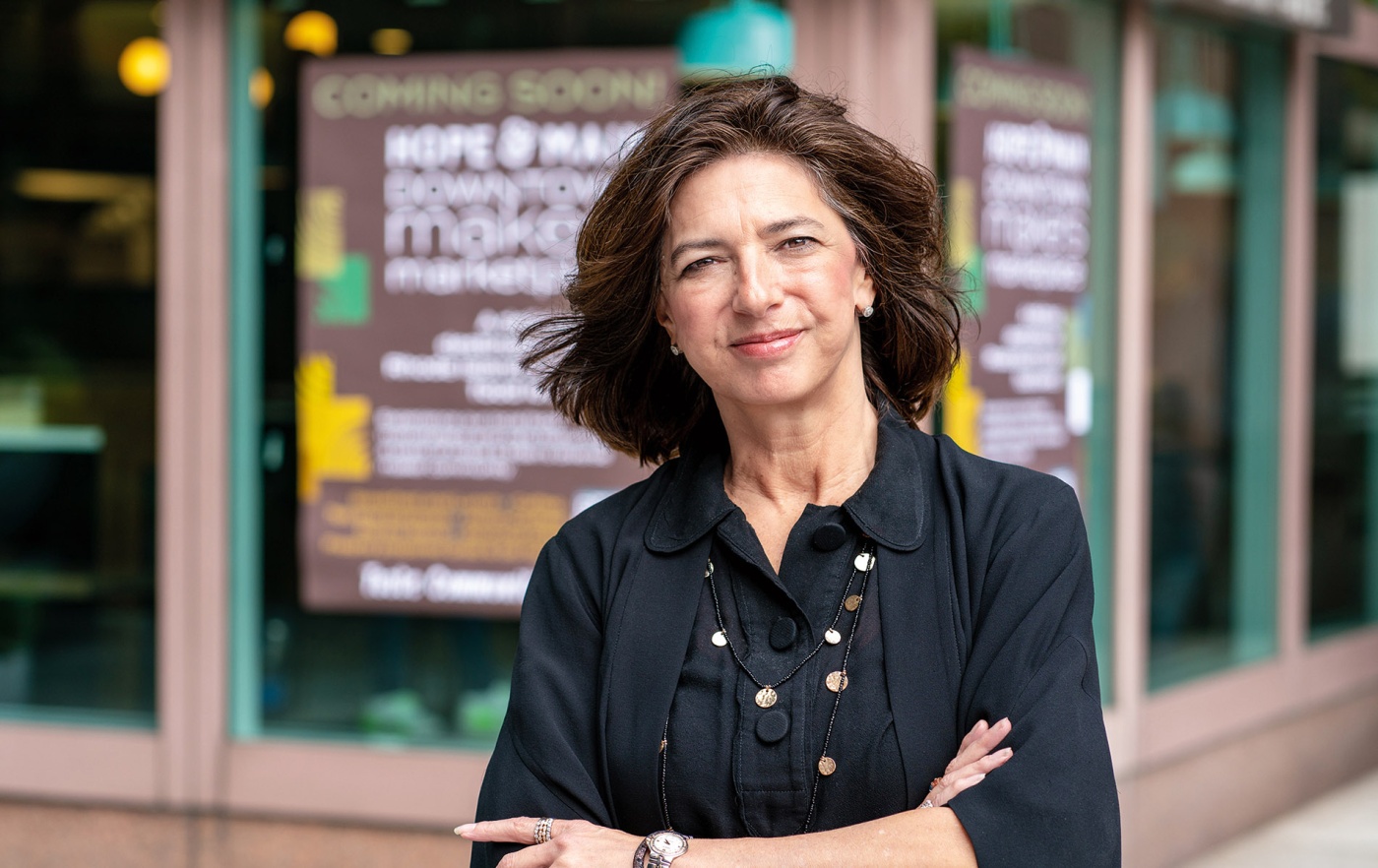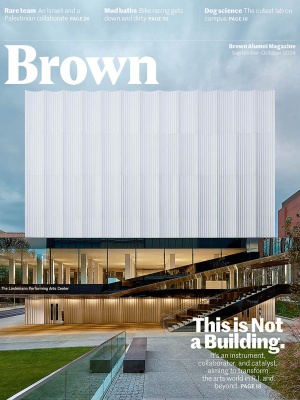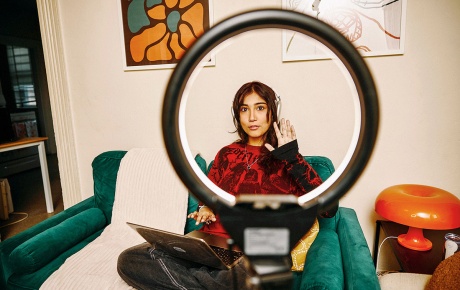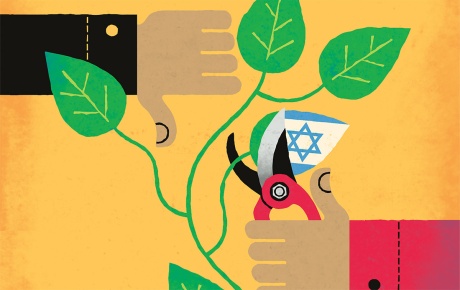In the early 2000s, after almost eight years working at Brown at the medical school and the office of advancement, Lisa Wurtzel Raiola ’84 resigned to fight an aggressive case of cancer. “To take back my health, I radically changed my diet,” explains Raiola, a biomedical ethics concentrator who went on to earn an MPH from the Boston University School of Medicine. “Unfortunately,” she says, “nutritious ingredients were hard to find and healthy meals time-consuming to prepare.”
When Raiola recovered, she decided to start a meal delivery service like the one she wished had existed when she was ill. Raiola eyed a small building in Warren, Rhode Island—where Hope Street turns into Main Street—but it wasn’t for sale. When she learned that a larger building down the street was available, she expanded her vision. “I decided to start a ‘food incubator’ for the many budding ‘foodpreneurs’ who don’t have access to capital.”
Hope & Main opened its doors in 2014 with a mission to “cultivate thriving food businesses that are the foundation of a more just, sustainable, and resilient local food economy.”
The nonprofit provides members with a shared-use commercial kitchen and essential wrap-around services: business and technical education, connections to capital, and access to markets.
Over ten years, Hope & Main has launched more than 500 food businesses in RI, 60 percent led by women, 40 percent by people of color. Beating the odds, almost half are still operating, creating thousands of jobs and pouring millions into the local economy. No wonder USA Today named Raiola Woman of the Year for the Ocean State.
To expand market access for members, last year Hope & Main—with support from the nonprofit foundation Papitto Opportunity Connection and commercial real estate company Paolino Properties—opened the Downtown Maker’s Marketplace at 100 Westminster Street in Providence. It showcases members’ foods in dishes served at the café and on the market’s shelves.
To meet growing demand from new foodpreneurs and provide affordable leased kitchen facilities to “graduates,” next year Hope & Main will open a second shared kitchen in Providence. As Raiola puts it, “We can’t bring in freshmen if we can’t get rid of seniors.”
While small-batch artisanal food is pricier than mass-produced food, Raiola says that Hope & Main is not elitist. “We enable first-generation Americans and small makers to earn a living wage and build generational wealth. In addition, through our Nourish Our Neighbors program started in 2020, we’ve distributed 65,000 free meals (made by members) to people in need. As a key player in the local food economy, we recognize our responsibility to tackle food insecurity in our midst.”






